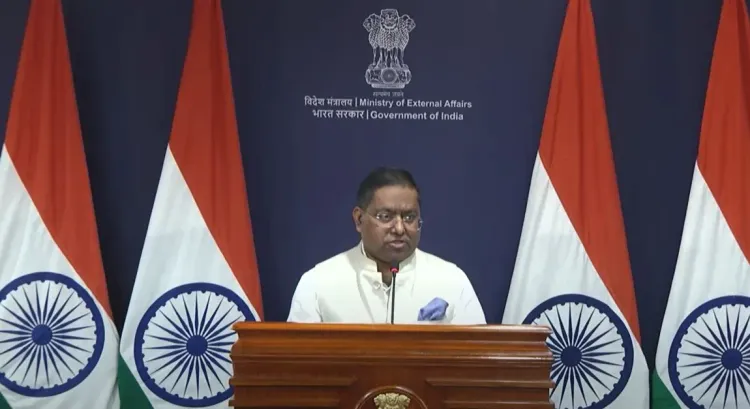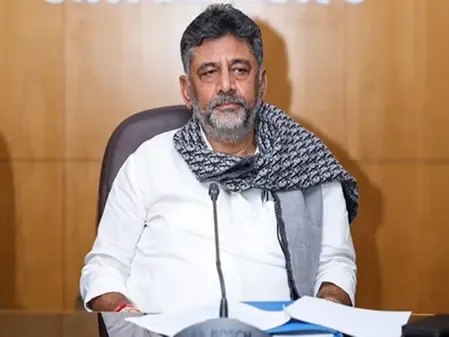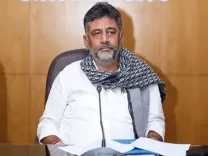Is India Warning Pakistan About Reckless Rhetoric?

Synopsis
Key Takeaways
- India criticizes Pakistan for reckless and hateful comments.
- Warnings of painful consequences issued for misadventures.
- Pakistani Army Chief's statements on the Indus River heighten tensions.
- India asserts it will not yield to nuclear blackmail.
- Comments made from a friendly nation are seen as regrettable.
New Delhi, Aug 14 (NationPress) India on Thursday criticized Pakistan for its ongoing reckless, war-mongering, and hateful comments directed at New Delhi. This behavior has been described as a well-known modus operandi of Pakistani leadership, which utilizes anti-India rhetoric to cover its own shortcomings.
During a weekly media briefing, Ministry of External Affairs (MEA) spokesperson Randhir Jaiswal issued a warning to Pakistan about the painful consequences that could arise from any misadventure.
"We have observed numerous statements and reports that reveal a persistent pattern of reckless, war-mongering, and hateful comments from the Pakistani leadership directed at India. It is a familiar tactic for them to stir anti-India sentiments to distract from their own failures. Pakistan should seriously consider moderating its rhetoric, as any reckless actions will lead to painful consequences, as evidenced recently," Jaiswal stated in response to questions regarding the controversial remarks made by Pakistani Army Chief General Asim Munir.
This strong response from the MEA followed Munir's recent remarks during a visit to the United States, where he asserted that Pakistan would never allow India to strangle the Indus River and would safeguard its water rights at any cost, even if it meant destroying any dams India attempted to construct.
"We will await India’s construction of a dam, and when that occurs, we will demolish it... The Indus River is not the property of the Indians. We possess ample resources to thwart Indian efforts to obstruct the river," Munir was quoted as saying by the prominent Pakistani daily Dawn at an event organized for the Pakistani-American community in Tampa, Florida, last week.
India, which has already asserted that it will not succumb to nuclear blackmail, had previously reacted firmly to Munir's comments.
On Monday, Jaiswal commented, "We have noted the remarks reportedly made by the Pakistani Chief of Army Staff during his visit to the United States. Nuclear saber-rattling is a common tactic of Pakistan. The international community can draw its own conclusions regarding the irresponsibility of such statements, which further raises concerns about the integrity of nuclear command and control in a state where the military collaborates closely with terrorist organizations."
The MEA also expressed disappointment that such remarks were made from the territory of a friendly third nation.
"It is unfortunate that these comments were made on the soil of a friendly third country. India has made it clear that it will not yield to nuclear blackmail. We will take all necessary measures to protect our national security," the MEA statement emphasized.
Earlier in April, India strongly condemned the Pakistani Army Chief for referring to Kashmir as Islamabad's jugular vein.
"How can anything foreign be considered their jugular vein? This territory is a Union Territory of India. The only connection it has with Pakistan is the need for that country to vacate illegally occupied territories," Jaiswal asserted during a regular media briefing on April 17.









